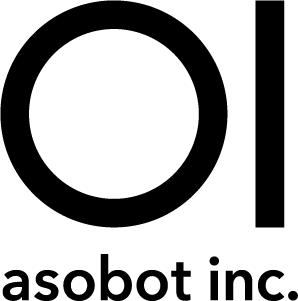

asobot inc.

1.6
Tokyo, Japan
June 2025
Other professional, scientific & tech
Service with Minor Environmental Footprint
Japan
Asobot Inc. is a communication design firm that helps clients turn what they want to say into something that truly reaches people. In communication, there’s a big difference between just sending a message and actually being understood. Asobot bridges that gap with creative ideas. The team includes editors and PR professionals who work across magazines, books, websites, and museums, and who support branding and communication strategies for both companies and nonprofits in the social sector. Asobot believes that both solving social issues and cultivating culture are essential to the society we live in. That is why the company engages with major social issues such as gender, aging populations, natural disasters, and human rights—challenges that may feel distant or overwhelming, but that deeply affect our lives. At the same time, Asobot values the everyday joys found in culture—delicious food, inspiring music and film, exciting sports. The name “Asobot” comes from a playful Japanese phrase (a casual way of saying “Let’s play!”). It reflects the company’s belief in creativity, curiosity, and the joy of working together.
Overall B Impact Score
Governance 13.9
Governance evaluates a company's overall mission, engagement around its social/environmental impact, ethics, and transparency. This section also evaluates the ability of a company to protect their mission and formally consider stakeholders in decision making through their corporate structure (e.g. benefit corporation) or corporate governing documents.
What is this? A company with an Impact Business Model is intentionally designed to create a specific positive outcome for one of its stakeholders - such as workers, community, environment, or customers.
Workers 29.3
Workers evaluates a company’s contributions to its employees’ financial security, health & safety, wellness, career development, and engagement & satisfaction. In addition, this section recognizes business models designed to benefit workers, such as companies that are at least 40% owned by non-executive employees and those that have workforce development programs to support individuals with barriers to employment.
Community 34.2
Community evaluates a company’s engagement with and impact on the communities in which it operates, hires from, and sources from. Topics include diversity, equity & inclusion, economic impact, civic engagement, charitable giving, and supply chain management. In addition, this section recognizes business models that are designed to address specific community-oriented problems, such as poverty alleviation through fair trade sourcing or distribution via microenterprises, producer cooperative models, locally focused economic development, and formal charitable giving commitments.
What is this? A company with an Impact Business Model is intentionally designed to create a specific positive outcome for one of its stakeholders - such as workers, community, environment, or customers.
Environment 7.9
Environment evaluates a company’s overall environmental management practices as well as its impact on the air, climate, water, land, and biodiversity. This includes the direct impact of a company’s operations and, when applicable its supply chain and distribution channels. This section also recognizes companies with environmentally innovative production processes and those that sell products or services that have a positive environmental impact. Some examples might include products and services that create renewable energy, reduce consumption or waste, conserve land or wildlife, provide less toxic alternatives to the market, or educate people about environmental problems.
Customers 6.7
Customers evaluates a company’s stewardship of its customers through the quality of its products and services, ethical marketing, data privacy and security, and feedback channels. In addition, this section recognizes products or services that are designed to address a particular social problem for or through its customers, such as health or educational products, arts & media products, serving underserved customers/clients, and services that improve the social impact of other businesses or organizations.
What is this? A company with an Impact Business Model is intentionally designed to create a specific positive outcome for one of its stakeholders - such as workers, community, environment, or customers.